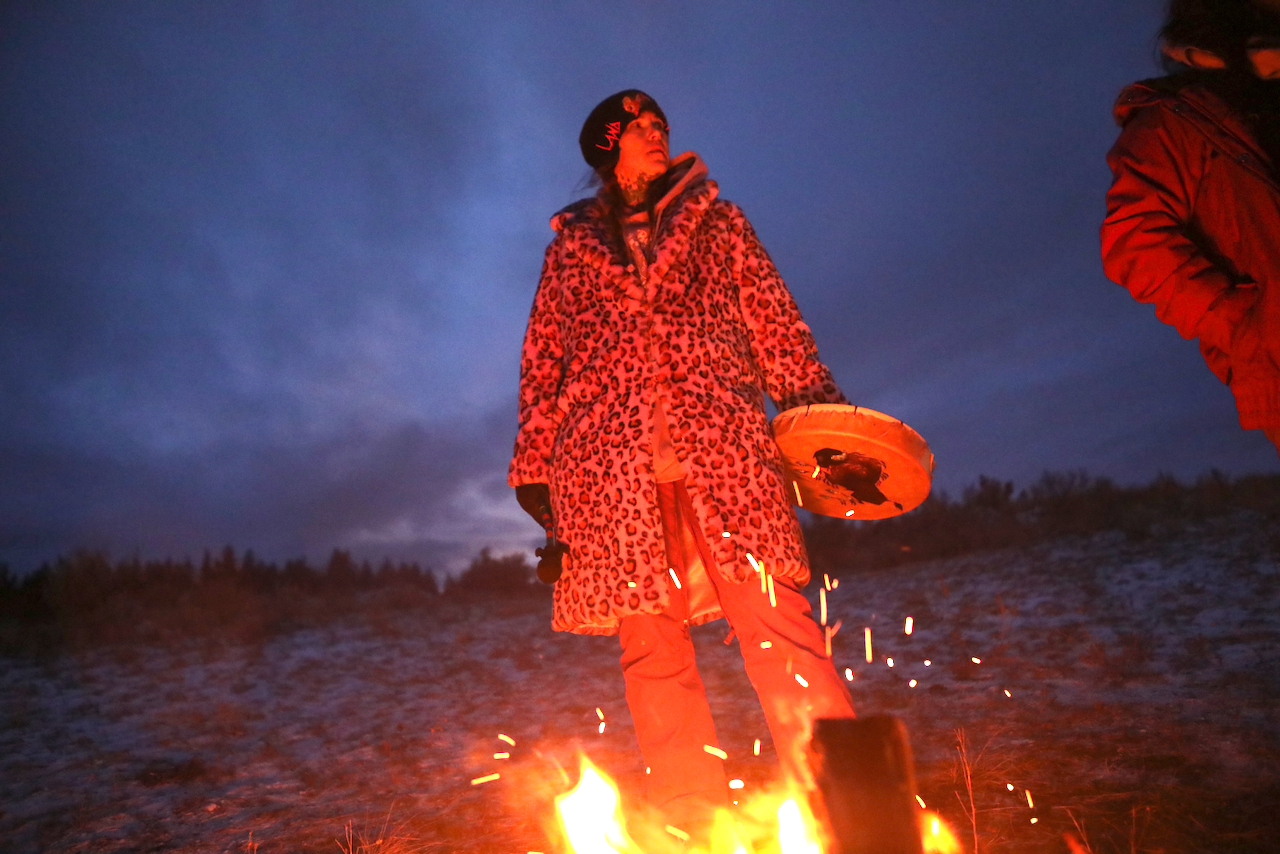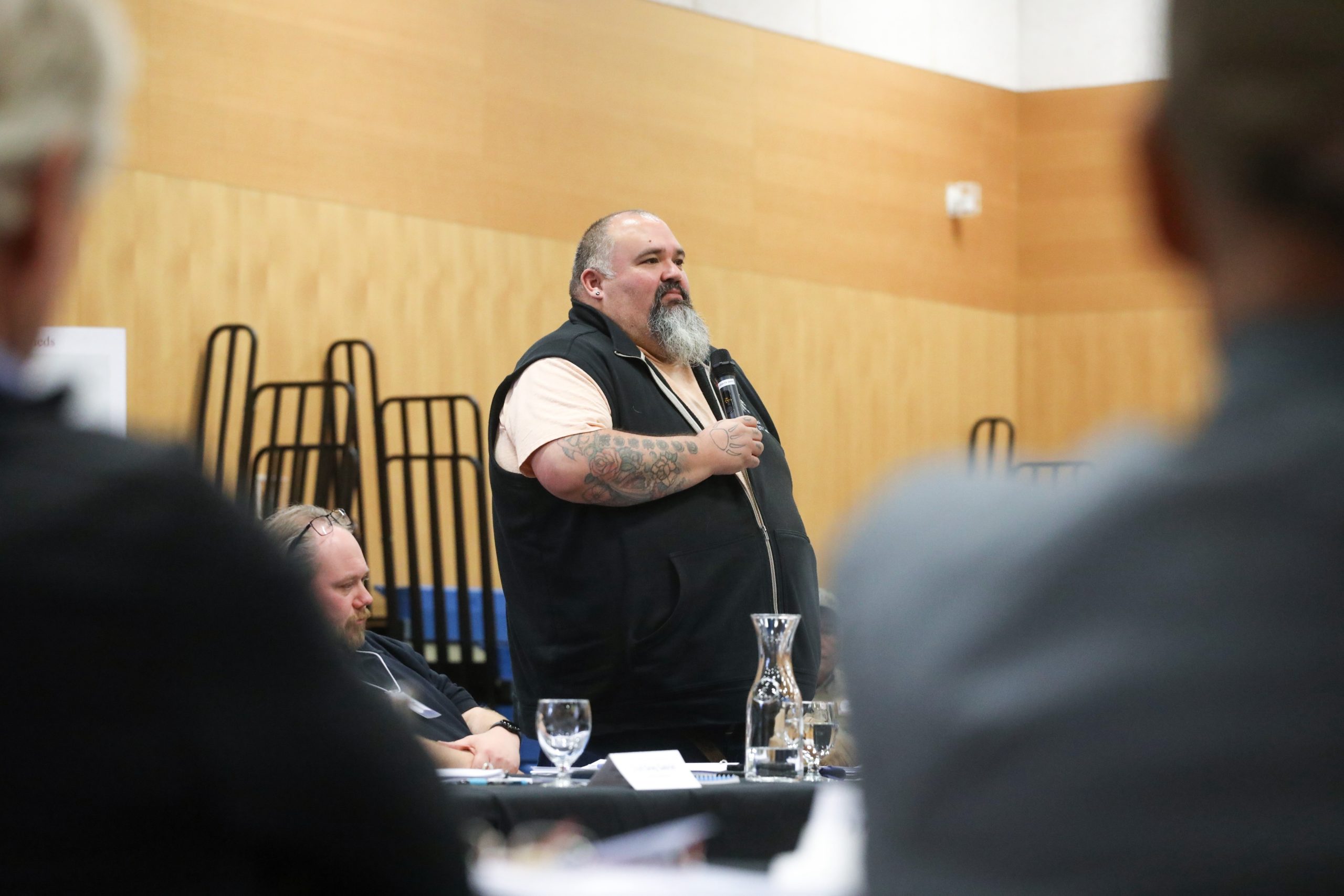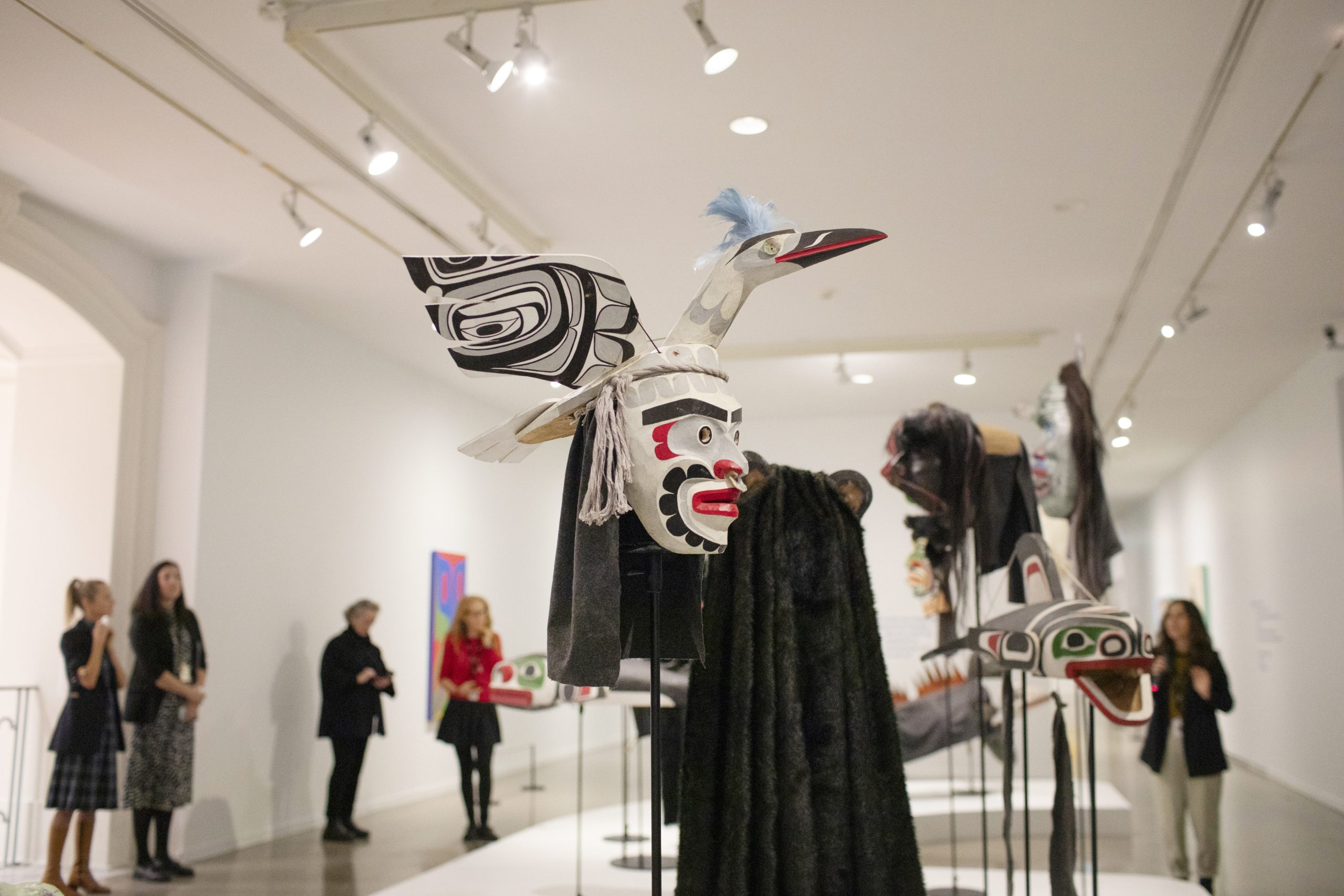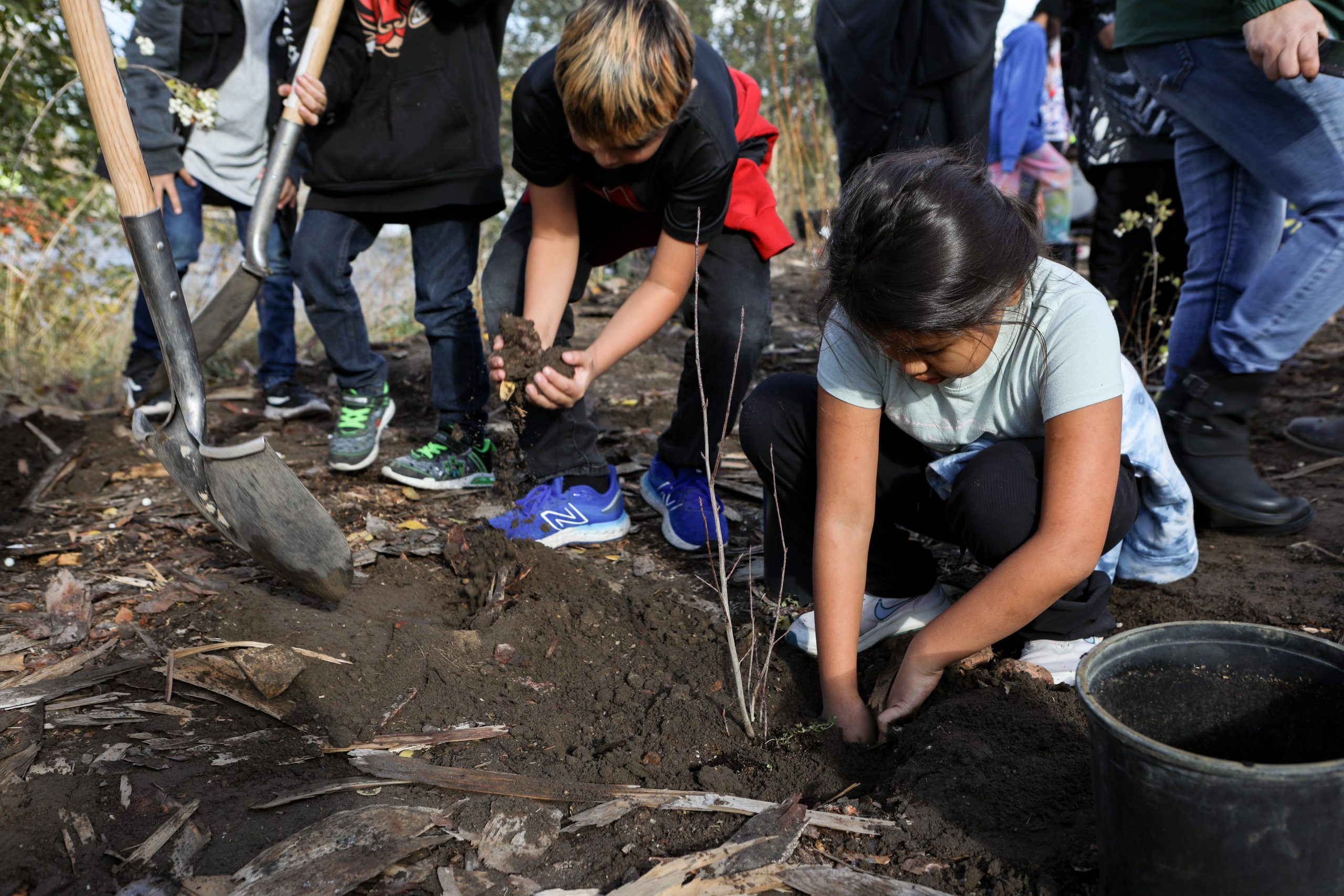Vernon’s Canada Day celebrations a ‘hurtful’ reminder of what’s lost
Members of the Syilx Nation say planned events are ‘sad’ and ‘hurtful,’ while thanking allies who are speaking up and holding space for grief.

This article contains content about residential “school” that may be triggering. IndigiNews is committed to trauma-informed ethical reporting, which involves taking time and care, self-location, transparency and creating safety plans for those who come forward with stories to share.
While some cities have called off Canada Day celebrations in light of the confirmation of over a thousand unmarked graves in recent weeks at former residential “school” sites — and the widespread grieving it’s prompted — in the City of Vernon, B.C., the show will go on.
On July 1 at O’Keefe Ranch, a “toned down” celebration funded by the city is scheduled to take place a kilometre away from the Okanagan Indian Band (OKIB) community, which has been heavily impacted by the recent findings.
“It’s sad, but I’m not surprised to see this … entitlement,” says Dina Brown, a Syilx woman, and intergenerational survivor.
“As someone who was forced to sing the national anthem, forced to stand for it and be made to feel uncomfortable as Indigenous Peoples … [this is] the one time that a massive discovery that starts a movement across our country forces us to look at the acts of ethnic cleansing and assimilation that occurred as a result of colonization,” says Dina.
Cody Isaac, a Syilx Nation member and a student at the University of British Columbia Okanagan, says it’s time for people to understand that this pain is real.
“We’re mourning. This is all very fresh and very raw for most people. It doesn’t matter if this happened yesterday, 25 years ago, 30 years ago, or 50 years ago — it’s very recent,” he tells IndigiNews.
“This celebration is something that is so hurtful to us because it’s a constant reminder of what we have lost, of everything that we have lost and what we have gone through as Indigenous people, and the effects of that are still very prominent to this day,” says Cody.
Megan Louis says it’s hard being Indigenous right now. A member of Cheslatta, a community in the Carrier Nation, she’s raising her sqilxw children on their Syilx territory.
“Canada is a dismal failure. They fail Indigenous Peoples relentlessly,” she says. “It is not a good feeling to be Indigenous right now.”
Celebrations at the ranch will be ‘toned down’
The North Okanagan Canada Day Society receives money and support from Vernon to plan Canada Day events — including this year’s event at O’Keefe Ranch. The ranch was founded in 1867 and aims to tell “the story of early BC Ranching and endeavours to preserve the history and culture of the early ranching era for future generations,” according to their website.
Dave Frost says he’s been the society’s president since it was founded in 2016.
This year’s celebrations are going to be “toned down,” he says, due to struggles with “a bunch of things” — including the heat wave and the “current state of affairs in terms of the discoveries of the unmarked burial sites [at] Indigenous residential schools.”
“We’re trying to carry on, but still be respectful of all these things,” he says. “We’re still steering people out to O’Keefe Ranch … [but] there won’t be much in the way of decorations or anything like that.”
He says in addition to the usual activities on offer at the ranch — such as mansion tours and demonstrations by the blacksmith and the wheelwright who makes wagons — this year they’ll be highlighting an exhibition called Where are the Children? Healing the legacy of the residential schools.
Curated by Iroquois artist Jeff Thomas, the travelling exhibition “explores the history and legacy of Canada’s Residential School System through Survivor stories, archival photographs, and documents,” according to the Legacy of Hope Foundation, an Indigenous-led, charitable organization.
IndigiNews also asked Frost to comment on a claim made recently by Vernon city councillor Scott Anderson about the society’s efforts to engage Indigenous people in its Canada Day events.
During a June 28 council meeting, Anderson said the “Canada Day society has invited members of [the Okanagan Indian Band council] and influential people from the band each and every year to not only be a part of the celebration but to take center stage during the opening ceremony” — adding “that has never come together as far as I’m aware, but not for lack of trying on the Canada Day society’s part.”
Frost says it’s true that the society has extended invitations “to OKIB, for instance, to see if they’re interested in participating in whatever form that takes … for instance, if they wanted to do a dance or something like that on the stage or be an emcee.”
“We’re not trying to force anybody, but definitely the invitation has always been extended,” he says.
Asked whether he can appreciate why Indigenous people may not want to participate in Canada Day celebrations, he says, “100 per cent, which is why we don’t ever push it … I can completely understand.”
Frost says he’s having complicated feelings about Canada Day this year.
“It used to be very important to me, actually, just because — yeah, it used to be very important. Still is, but definitely, a lot of the sheen has worn off.”
IndigiNews asked leadership from the Okanagan Indian Band for comment, while acknowledging that they are a community in mourning. They declined to comment on the record for this story, but expressed an interest to discuss in the near future.
Neighbouring Salmon Arm doesn’t support Canada Day events
Much like Vernon, the City of Salmon Arm lies about 100 km away from Tk’emlups (Kamloops), where Tk’emlúps te Secwépemc Nation recently announced that 215 unmarked graves were found at the site of the former Kamloops Indian Residential School.
Unlike Vernon, Salmon Arm has opted not to plan or approve any Canada Day events this year.
This decision was made “as a result of the provincial health orders,” reads a statement released by the city on June 29. “But much more importantly, in light of the confirmation of the location of over a thousand graves of child victims of the residential school system, we must focus on the grief, the sorrow, in condolence and respect for the lives lost and the trauma lived.”
Alan Harrison is the mayor of Salmon Arm.
“It wasn’t a decision made with a knee-jerk reaction,” he tells IndigiNews. “We have been talking about reconciliation and working with Neskonlith, Splatsin, Adams Lake, and Little Shuswap as neighbours and partners for some time.
“After news came out of Kamloops and Saskatchewan, we had discussions that we could not imagine what those kinds of discoveries would be like if they were our relatives. We were so saddened and sorrowful, we didn’t even know what to say. So we gathered and knew we needed to support the Indigenous neighbours.”
‘Thank you to the allies and people who are seeing this for what it is’
Cody says he recognizes and acknowledges the efforts and actions of non-Indigenous allies.
“Thank you for not only acknowledging that we are hurting, [but] that there is something very, very painful going on across the nation for our people, and thank you for not being afraid to speak up or show your support,” says Cody.
Fellow OKIB member Dina says she’s “actually quite grateful for the non-Indigenous folks, the settler folks, who are acting as allies at this time and are listening, are learning, and taking a moment just to reflect on this country and how this country came to be, and what it means for our community and future generations.”
Canada Day events have also been canceled in Victoria, B.C., Penticton, B.C. and La Ronge, Sask. In their place, people have organized marches, memorials and gatherings across the country.
Megan Louis says she appreciates efforts cities like Salmon Arm are making to “hold space for the grief of Indigenous Peoples.”
“Not everyone is ignorant and racist. I want to thank [allies] for holding these people accountable, and showing up,” she says.
“We’re trying to raise our children in a different way … [so] from the bottom of my soul, it makes me so happy to see Indigenous allies.”
Support for survivors and their families is available. Call the Indian Residential School Survivors Society at 1-800-721-0066, 1-866-925-4419 for the 24-7 crisis line. The KUU-US Crisis Line Society also offers 24-7 support at 250-723-4050 for adults, 250-723-2040 for youth, or toll-free at 1-800-588-8717.
EDITOR’S NOTE: IndigiNews used first names to refer to people in this story out of respect for residential “school” survivors. We understand that some survivors have negative associations with last names as a result of their use in these so-called residential “schools.”
Author
Latest Stories
-
‘Bring her home’: How Buffalo Woman was identified as Ashlee Shingoose
The Anishininew mother as been missing since 2022 — now, her family is one step closer to bringing her home as the Province of Manitoba vows to search for her
-
Will you help us tend to the fire?
IndigiNews is launching a fundraising campaign to support our storytelling into 2026












